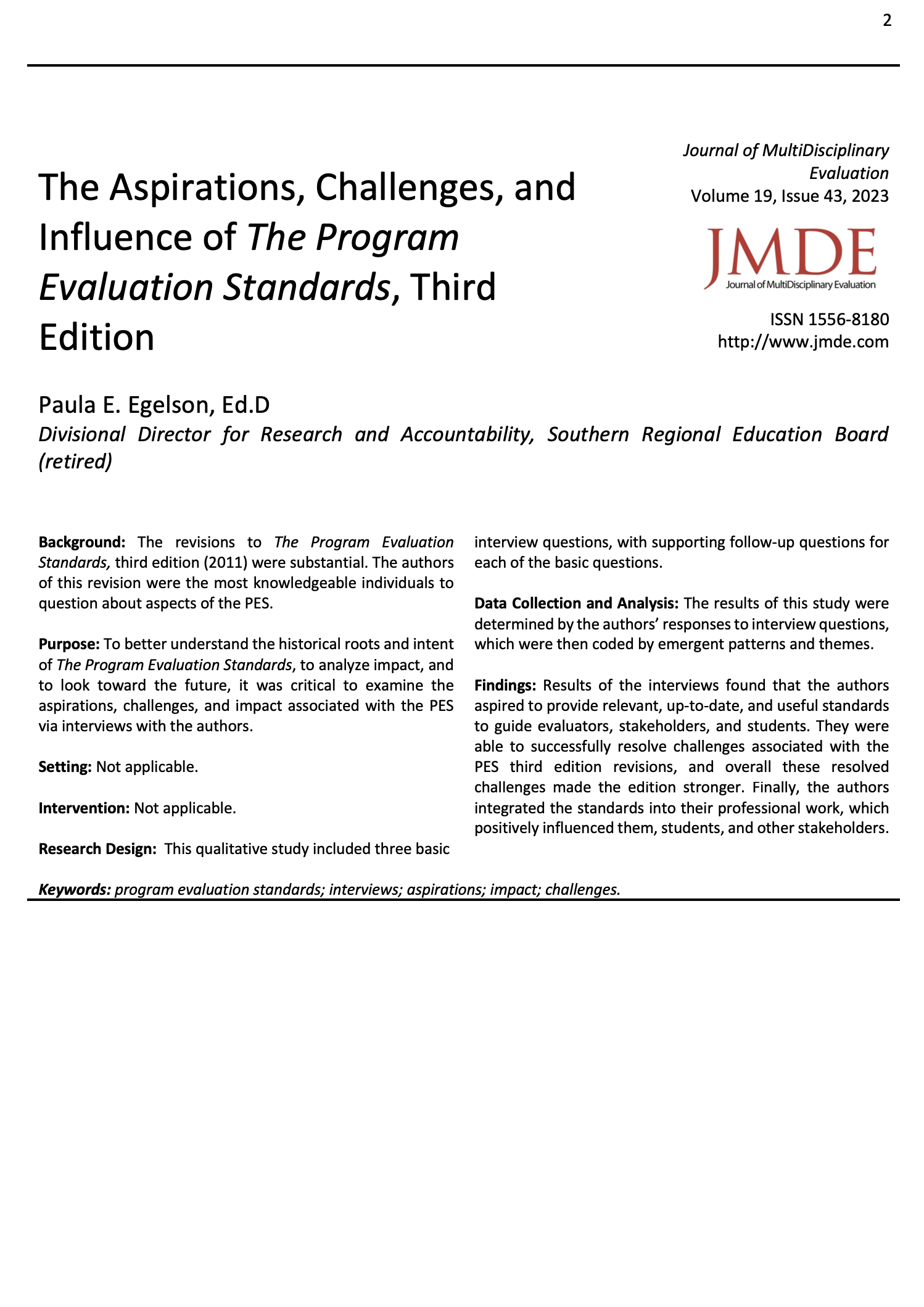The Aspirations, Challenges, and Influence of the Program Evaluation Standards 3rd Edition
Main Article Content
Abstract
Background: The revisions to The Program Evaluation Standards, third edition (2011) were substantial. The authors of this revision were the most knowledgeable individuals to question about aspects of the PES.
Purpose: To better understand the historical roots and intent of The Program Evaluation Standards, to analyze impact, and to look toward the future, it was critical to examine the aspirations, challenges, and impact associated with the PES via interviews with the authors.
Setting: Not applicable.
Intervention: Not applicable.
Research Design: This qualitative study included three basic interview questions, with supporting follow-up questions for each of the basic questions.
Data Collection and Analysis: The results of this study were determined by the authors’ responses to interview questions, which were then coded by emergent patterns and themes.
Findings: Results of the interviews found that the authors aspired to provide relevant, up-to-date, and useful standards to guide evaluators, stakeholders, and students. They were able to successfully resolve challenges associated with the PES third edition revisions, and overall these resolved challenges made the edition stronger. Finally, the authors integrated the standards into their professional work, which positively influenced them, students, and other stakeholders.
Keywords: program evaluation standards; interviews; aspirations; impact; challenges.
Downloads
Article Details

This work is licensed under a Creative Commons Attribution-NonCommercial 4.0 International License.
Copyright and Permissions
Authors retain full copyright for articles published in JMDE. JMDE publishes under a Creative Commons Attribution-NonCommercial 4.0 International License (CC BY - NC 4.0). Users are allowed to copy, distribute, and transmit the work in any medium or format for noncommercial purposes, provided that the original authors and source are credited accurately and appropriately. Only the original authors may distribute the article for commercial or compensatory purposes. To view a copy of this license, visit creativecommons.org
References
Fournier, D. (1994). Journal of Educational Measurement, 31(4), 363-367. Retrieved September 6, 2021,
from http://www.jstor.org/stable/1435400.
Hancock, D. & Algozzine, B. (2006). Doing case study research. New York, New York: Teachers
College Press.
Mason, J. (2002). Qualitative researching. (2nd ed.). Thousand Oaks, California: SAGE Publishing.
Saldana, J., (2011). The coding manual for qualitative researchers. Thousand Oaks, California: SAGE
Publishing.
Thomas, D., (2006, June). A general inductive approach for analyzing qualitative evaluation data. DOI: https://doi.org/10.1177/1098214005283748
American Journal of Evaluation. 27(2), 237-246.
Yarbrough, D., Shulha, L., Hopson, R., & Caruthers, F. (2011). The Program Evaluation Standards.
Thousand Oaks, California: SAGE Publishing.

